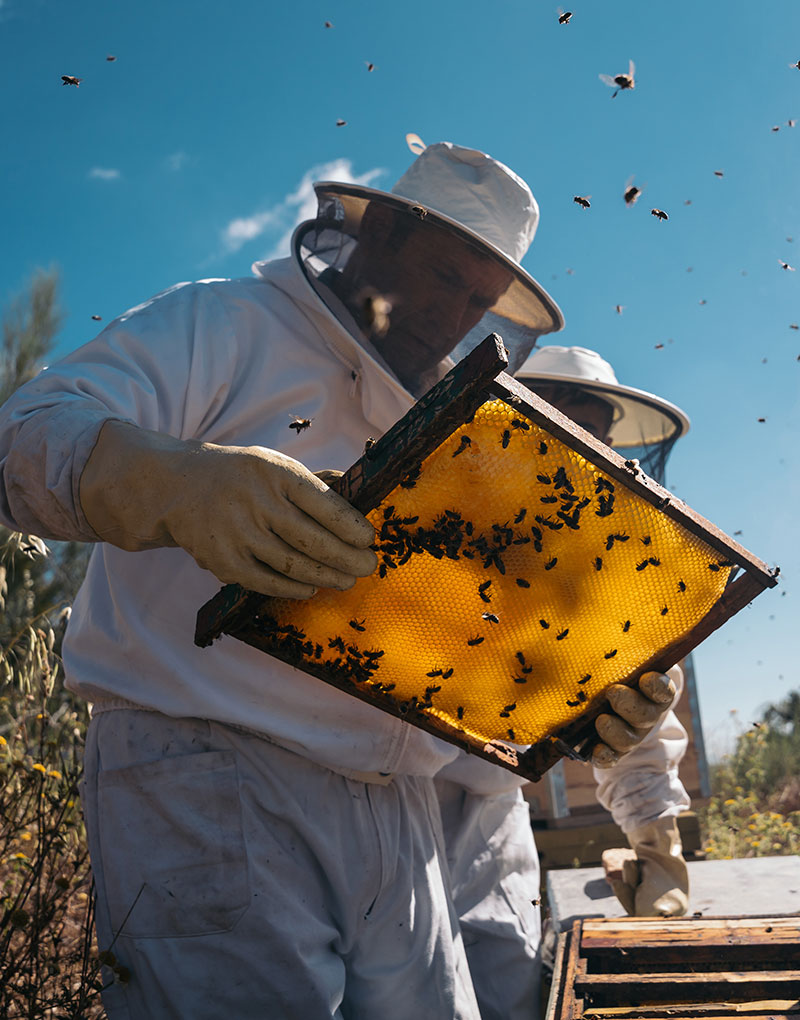Manuka honey has become somewhat of a buzzword, and for all the right reasons.
This type of honey is native New Zealand where it’s produced by bees that pollinate the flowers of a specific kind of tea tree, the manuka bush or otherwise known scientifically as: Leptospermum scoparium. It’s been traditionally used as a cure-all for common ailments like wounds, sore threats, and even acne as well as ulcers. Not to mention, research shows positive results in the use of manuka honey in treating gingivitis, plaque and overall general oral health.
The antibacterial properties of Manuka honey
Honey, in general, is lauded as having excellent antibacterial properties.
According to one study, “honey can be a possible alternative antibacterial agent with promising therapeutic potential in the medical setting.” Manuka honey, specifically, has been proven to be effective against specific types of bacteria.
In a pilot study, researchers found out that chewing chewable “honey leather” made out of manuka honey for 10 minutes, three times a day, after each meal, significantly reduced plaque and bleeding. Manuka honey has also been found to be superior to specific types of honey. When pitted against Dabur honey on S. mutans and Lactobacillus bacteria, an in vitro study found that Manuka honey had “more antibacterial activity” at all concentrations.
Finally, all types of money have a germ-busting substance called MGO, which, when converted to DHA, helps in healing minor as well as chronic wounds. Higher MGOs are commonly associated with better antiviral and antibacterial properties. One reason why Manuka honey is considered as a superfood is because it can have up to 100 times more MGO compared to other types of raw honey.
This explains why some countries require FDA registration for Manuka honey bandages and wound products.
Manuka honey and oral health
There are several studies that show the positive effects of manuka honey on your oral health.
A study among 12-15-year-old children proved that using honey-based mouthwash showed “promising antimicrobial effect on dental caries and plaque and gingival scores.” All of this translates to potential prevention of gingivitis and its more serious form, periodontitis.
Is manuka honey worth the premium?
For most people, manuka honey is at least worth trying out. The added price is offset by its health benefits. But, it’s best to exercise caution.
Keep in mind that manuka honey is still a form of simple sugar. You should try to limit how much sugar you have on your daily diet. Otherwise, you’ll put yourself at risk for weight gain, liver disease, diabetes, heart disease, and other health complications, including gingivitis and periodontitis.
If you have diabetes or honey allergy, you should limit if not avoid manuka honey altogether.
At the end of the day, manuka honey isn’t a cure all. Plus, the fact that it has multiple uses from topical to being a food sweetener, makes it an attractive choice. If nothing else, it should be supplemental to conventional treatments for wound management and healing.













